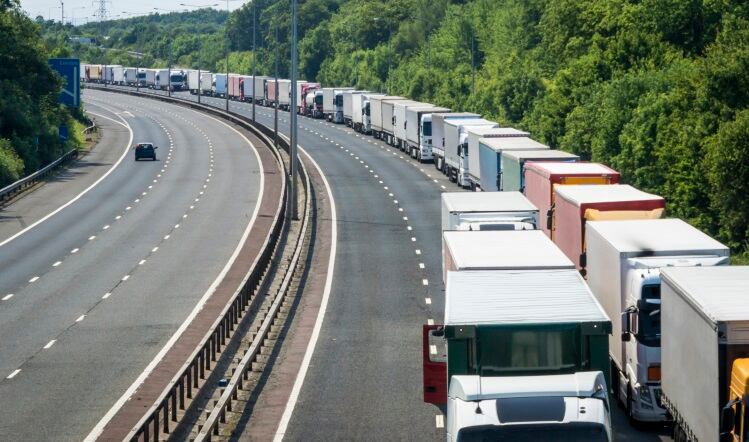The Government’s last-minute Brexit deal with the EU has left many businesses uncertain about the future of trade between the UK mainland and Northern Ireland (NI).
Uncertainty surrounding a potential no-deal Brexit over Christmas, as well as the challenges presented by the coronavirus pandemic has left some firms caught out by new customs regulations, explained Scala executive director David Howorth.
“Whilst it has been clear for some time as to how Northern Ireland would operate in terms of the UK and EU, the finer details of how these new customs checks would work only became entirely clear in the weeks leading up to 1 January, so this confusion seems understandable,” Howorth said.
“Beyond the initial disruption it may be that some businesses may have to re-evaluate and redesign their entire logistics solutions when supplying the region.”
Withdrawing from Northern Ireland
He said the emerging difficulties in exporting to NI could tip the scales for some businesses, prompting them to withdraw from the market, a move trade bodies warned about last year.
While this could hit the country’s supplies of food and drink products, Howorth argued that it could present openings in the market as companies potentially removed their services to NI.
Howorth said supply chain operators should treat NI as a member of the EU when implementing their logistics strategy. He also advised businesses to make use of all the tools at their disposal to ensure they are up-to-date and that their drivers have the correct documentation to deliver to the region, without contributing to the severe delays currently being witnessed.
Some brands are already facing the sting of the new swathe of regulations being enforced on products exported to NI.
Upmarket retailer Marks & Spencer (M&S) said more than 2,000 of its products – including its iconic Percy Pigs range of confectionery – had been affected by rules of origin regulations. While the UK has a non-tariff agreement with the EU, these regulations could prove costly to exporters.
In its third quarter trading statement released this week, M&S said: “The free trade agreement with the EU means we will not incur tariffs on our core UK sales.
Significant impact to business
“However potential tariffs on part of our range exported to the EU, together with very complex administrative processes, will significantly impact our businesses in Ireland, the Czech Republic and our franchise business in France which we are actively working to mitigate.”
The disruption of trade with the EU in the aftermath of Brexit has also put the future of the UK seafood industry at risk.
Responding to the current Brexit disruption, Seafood Scotland chief executive Donna Fordyce said: “The last 48 hours has really delivered what was expected – new bureaucratic non-tariff barriers and no one body with the tools to be able to fix the situation.
Perfect storm
“It’s a perfect storm for Scottish seafood exporters. Weakened by COVID-19 and the closure of the French border before Christmas, the end of the Brexit transition period has unleashed layer upon layer of administrative problems, resulting in queues, border refusals and utter confusion.”
Fordyce highlighted IT problems in France and with the HMRC that have caused consignments to be diverted to the wrong ports and prompted issues regarding certification respectively.
“A lack of knowledge and understanding of the required paperwork means some companies are ill prepared for the new checks, which are taking far longer because of the mistakes being uncovered,” she added.
“When the systems settle down, checks should be carried out on samples from each load, but now entire consignments are having to be checked to satisfy requirements.”
She warned of the knock-on effect on the fishing industry, which could soon have little to no reason to fish if stock goes to waste due to delays at the border.
Mop up the mess
“The problem is no longer hypothetical,” Fordyce concluded. “It is happening right now. We are working with industry, Government and other bodies to try to mop up the mess to allow trade to flow again.
“We are doing all we can to help companies get the paperwork done. It will take time to fix – which we know many seafood companies can’t afford right now.”
Frozen food trade body on Brexit disruption
British Frozen Food Federation (BFFF) chief executive Richard Harrow said: “All of the months of planning and preparation now become reality as companies find out just how good their preparation has been.”
The BFFF highlighted the continued issues with both availability and costs of container traffic – with some shipping lines deciding not to come to the UK, prices for containers have skyrocketed when they do become available.
It revealed plans to lobby the Government to become involved with these issues and called on its members to provide as much information s they could to back up this campaign.





